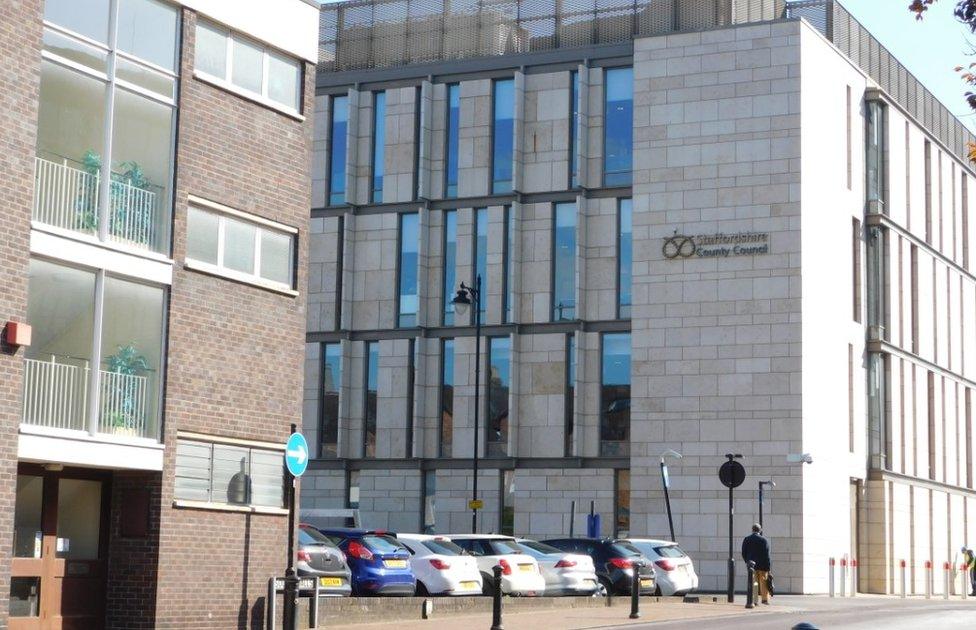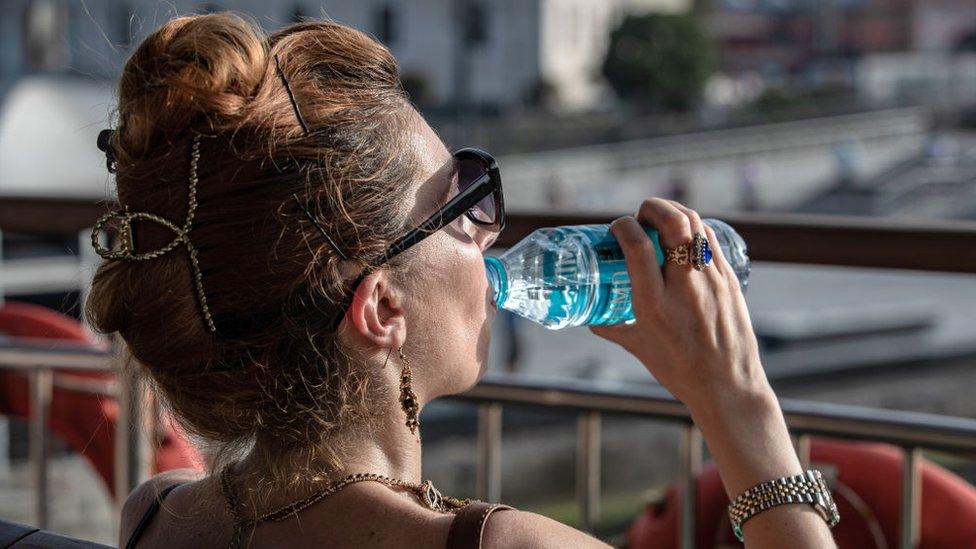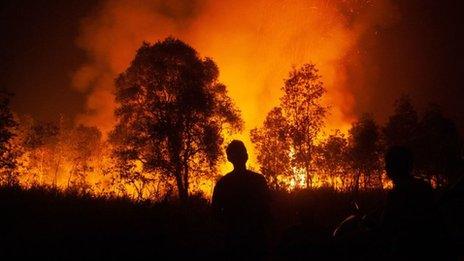Staffordshire County Council says it has cut carbon emissions in half
- Published

Staffordshire County Council said it had devised "a comprehensive climate change action plan"
Carbon emissions have been cut in half by a council in less than five years, a report has revealed.
Staffordshire County Council's cabinet was told that work done since the authority declared a climate emergency in 2019, had led to the result.
Cuts in gas use in its buildings and maintaining schools more efficiently were among factors, a report said.
But the council admitted it would "become proportionally more difficult" regarding reducing CO2 emissions.
In the summer of 2019, it pledged to become carbon-neutral in the coming decades and has said work was ongoing in the bid to reach net zero by 2050.
'Hard work'
From 2021/22 to 2022/23 there was a "significant reduction" in carbon emissions of around 2,611 tCo2e (tonnes of carbon dioxide equivalent) - about 9% - the report to cabinet said.
It added the cuts came from a number of areas such as "reduction in electricity use within waste management and the use of hydrotreated vegetable oil within some of our heavy fleet vehicles".
Last year £5.75m was awarded to 427 properties in the county, with 540 energy efficiency measures installed through the Staffordshire Warmer Homes scheme.
A council members' Climate Change Action Fund also supported 73 projects in Staffordshire last year.
Simon Tagg, cabinet member for environment, infrastructure and climate change, said the 50% reduction was "a testament" to its "dedication and hard work".
'Picked the low-hanging fruit'
Cabinet member for health and care Julia Jessel, said: "As we go along this journey, continuing to reduce CO2 emissions is going to become more and more difficult.
"We've already picked the low-hanging fruit, we're still making progress but it will become proportionally more difficult."
Ms Jessel added that to achieve net zero it was "really important that we tackle one of the other key elements of CO2 - reducing the amount of waste we produce as a society".
She acknowledged, for example, that recycling rates within the county had "plateaued out" but welcomed the fact that in its action plan there was a pledge "to develop a Staffordshire materials recovery facility to reduce haulage requirements".

Follow BBC West Midlands on Facebook, external, X, external and Instagram, external. Send your story ideas to: newsonline.westmidlands@bbc.co.uk, external
- Published8 November 2023

- Published30 October 2023
